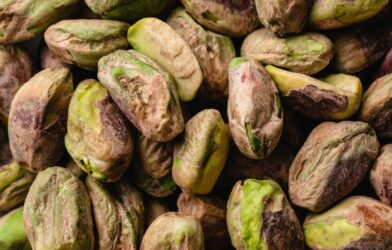The awful feeling of nausea known as “morning sickness” can occur at any time in the day and often results in vomiting, and sometimes gastrointestinal flair-ups like constipation or diarrhea. Previous research indicates that hormone levels during pregnancy may throw off the balance of beneficial microbes in the gut, causing nausea and vomiting. Probiotics may help to restore the beneficial bacteria and stave off morning sickness, according to a new study.
“The cause of nausea and vomiting during pregnancy is unknown to this date. Various theories have been proposed, but none of them is conclusive,” says lead author, Albert T. Liu, in a statement.
“Nausea, vomiting, and constipation during pregnancy can significantly diminish the quality of patients’ lives. Once nausea and vomiting during pregnancy progress, they can become difficult to control, and sometimes the patient even needs to be hospitalized,” Liu adds.
Good bacteria, found in yogurt and fermented foods like sauerkraut and kimchi, are known as probiotics and help maintain the diverse populations of beneficial microbes in the gut. As estrogen and progesterone hormones rise, they cause metabolic changes that interfere with the microorganisms living in the gut. This may be the mechanism behind morning sickness for many pregnant women, researchers say.
The Benefits of Probiotics
In a study involving 32 pregnant women, each participant was given probiotics with approximately 10 billion living cultures of good bacteria, such as the bacterium Lactobacillus. Over a span of 16 days, the women were asked to take the supplements twice a day for six days straight, then wait two days before taking them again. Symptoms were logged in a journal each day.
Results showed a significant decrease (33%) in the number of times each participant vomited, as well as a decrease (16%) in the amount of time each participant experienced nausea. Moreover, the probiotics increased the overall energy level & appetite of each participant, while helping them maintain regular bowel movements.

“Over the years, I’ve observed that probiotics can reduce nausea and vomiting and ease constipation. It’s very encouraging that the study proved this to be true,” says Liu. “Probiotics have also benefited many of my other patients who weren’t in the study,” says Liu.
To determine the specific populations of microbes present, the team analyzed fecal samples taken before and after participants were given probiotics. A low number of bile-generating microbes enhances “morning sickness”, according to the study. Probiotics increase these specific microbes thereby lessening the symptoms of nausea and vomiting.
Biomarkers for Morning Sickness
Additionally, the team found that those with Akkermansia and A. muciniphila bacterial strains reported increased nausea prior to taking probiotics. Probiotics seem to reduce these specific microbe populations helping to ease the feeling of nausea.
“This research provides key insights about the impact of gut microbes on gastrointestinal function during pregnancy. Our gut microbiota explains why we are what we eat, and why bacteria-generated metabolites and products have a huge impact on our health,” says co-author Yu-Jui Yvonne Wan. “They affect the gastrointestinal tract as well as skin health and neurological function.”
“Our previous work showed the benefits of probiotics in preventing liver inflammation. The current study might be one of the first to show the benefits of probiotics in pregnancy,” concludes Wan. “It would be interesting and important to further test whether probiotics can reduce nausea and vomiting caused by chemotherapy in cancer patients.”
Find the published study in Nutrients.












